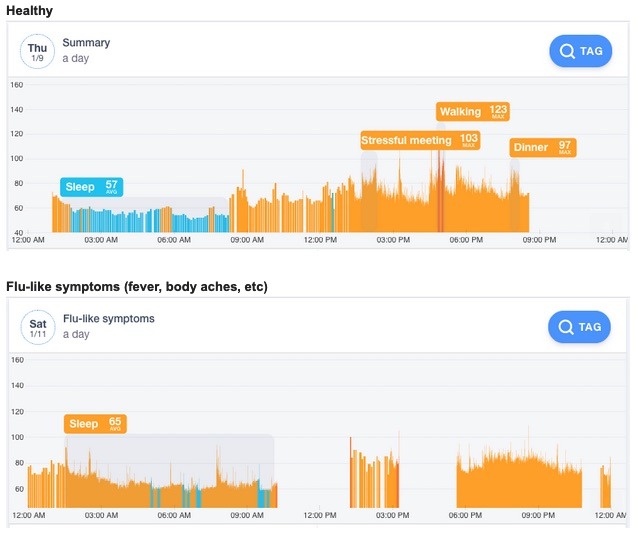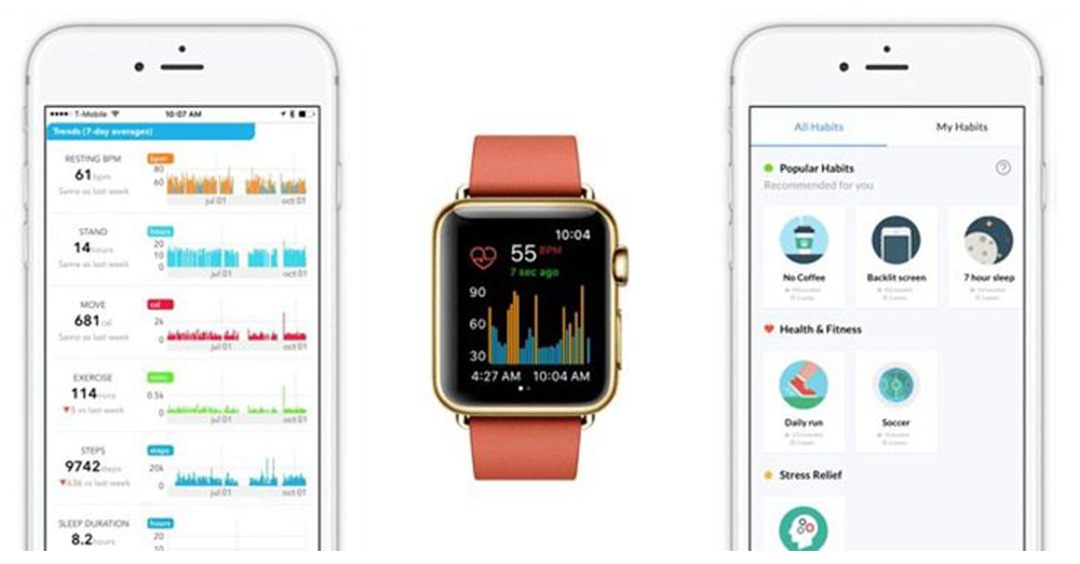Thanks to a new feature introduced by the heart health app Cardiogram, through which just by using the Apple watch, one can monitor the response to symptoms of infections like COVID-19 or other flu.
One of the best health fitness trackers and the smartwatch by the company, the Apple Watch is capable of tracking your heart rate, monitor your sleep cycles, & optimize workouts and much more. You can even stream music and can communicate through your watch if you are away from your phone. Surely, this smartwatch was the gadget of the decade as it has been a total game-changer in the wearables market. The new update of the Watch will let users identify if their body is fighting off symptoms of the flu or coronavirus.
Known for its tight watchOS and HealthKit integration, Cardiogram app can give you a detailed report about your heart rate with graphs and allows you to export the data as a PDF for your doctor. As per the new update, the Sleeping BPM feature will help you in monitoring your body’s response to symptoms of flu and coronavirus. According to Cardiogram’s co-founder Johnson Hsieh- “Cardiogram’s new Sleeping BPM feature can help users become more aware of how their body is responding to symptoms of the flu or other illnesses including COVID-19.”

According to Apple Insider, the body’s resting and sleeping heart rate indicates a huge difference when the body is fighting a problem like COVID-19. The new feature lets users easily mark and track these heart rate differences with the Apple Watch, giving people more data to monitor their sickness. So if someone is suffering from any symptoms of the flu or COVID-19, the app will compare the data with your resting heart rate and then will be able to find out how your heart is responding to any sickness your body might be experiencing. When we’re ill, our cells in the immune system release small proteins called histamines, which cause the expansion of blood vessels and sends signals to the brain to increase the heart rate and the amount of blood sent to the inflamed part. This type of elevated heart rate through times of infection or fever is most notable during sleep, Hsieh said. Therefore, the new feature could offer some insights into how a user’s body is responding to a sickness.

Source- Apple Insider

